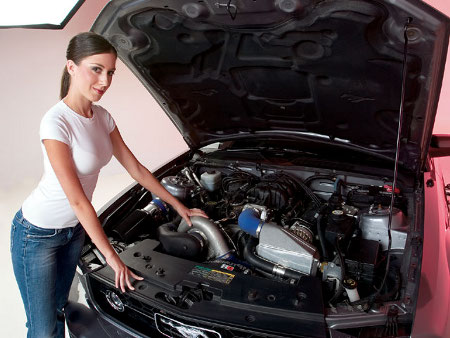Tending to your car will enable your car to travel longer down the road and will give you a sense of pride when you are fixing your car. Auto owners need to pay more attention to their cars so the junkyards and the streets don’t get cluttered up. The more cars we can keep on the road, the cleaner the streets will be. Fixing your older car can be fun and exciting and will give you a greater sense of appreciation of the automobile. All of the parts can be found in the auto parts stores and if by chance you can’t find them there, you can always go online and find them.
Recent surveys show that 5 out of 10 accidents could have been diverted by just doing basic maintenance on your vehicle. Just by doing simple maintenance on your vehicle, you can extend the life of your car, helping with a healthier and stable environment.
Tending to the upkeep of your engine can save you gas mileage and give you more of an understanding of the operation of your vehicle. If you know more about your car, when something goes wrong, you will be able to know what it is instead of taking it to the shop and spend extra money you don’t have. Tending to your car starts at the very beginning, from the first day you buy the car.
Basic maintenance starts with your basic tune-up. For that you need spark plugs, ignition wires, a distributer cap and a rotor. Here are a few tips to keep your car up and running longer.
- Change your oil every 3,000 to 5,000 miles. Your engine will start make weird noises if the motor is not kept up. When doing the oil change, make sure you change the oil filter as well. It will do no good if you run clean oil through a dirty oil filter.
- Check the tires every month. By checking your tires it will make sure your alignment is not off causing uneven ware on your tires. Make sure the tires on your car are properly inflated. If the tires are under inflated or over inflated, that can lead to serious problems later down the road.
- Check all of the fluid levels. The fluids you will need to check will include the power steering, brake, antifreeze, washer solvent and the transmission fluid. these fluids are essential for the operation and the safe running of the vehicle.
- Inspect the muffler of the car when it is running to make sure that it has good air flow through it. If the muffler is plugged, make sure you replace it right away.
- Clean the battery posts and cables when necessary and analyze the connection points for corrosion. Check the battery fluids and make sure it has enough fluid except for batteries that are maintenance-free.
- Inspect engine belts for any knicks and tears. Make sure the belt is running on the right track. You don’t want to replace a belt or even worse, a water pump while you are sitting on the side of the road.
- Underneath the car, you will find some grease receptacles to grease the moving components such as the ball joints and the tie-rods. Poor maintenance of these parts can put your car right into the ditch or even worse cause an accident.
- Make sure all of your headlights and taillights work. It is just a simple bulb exchange from a bad bulb to a good one. Check all of the lights on your car to see if they all work, if they don’t, replace them as soon as you can.
- Check and see if your wipers work. If the do, and wipe the windshield clean, you have nothing to worry about. If you turn your wipers on and you have streaks on the windshield, replace the wipers when you get a change. You need to see when you are out driving on the road.

No comments:
Post a Comment